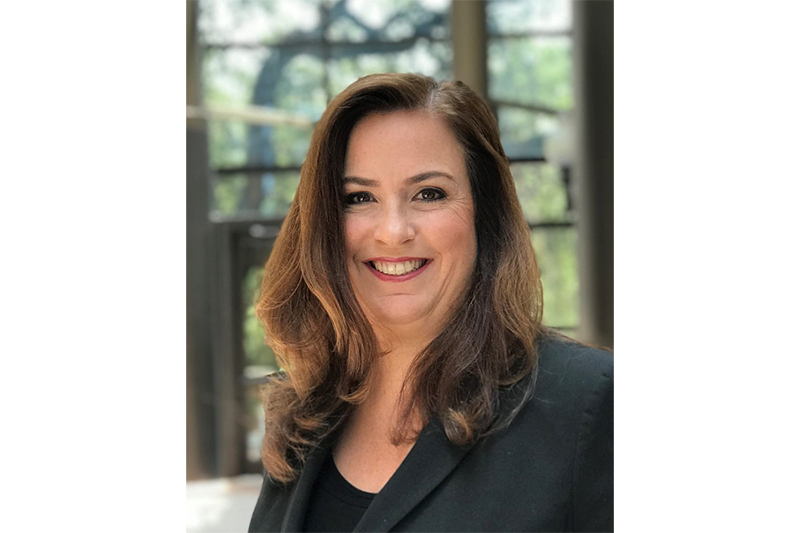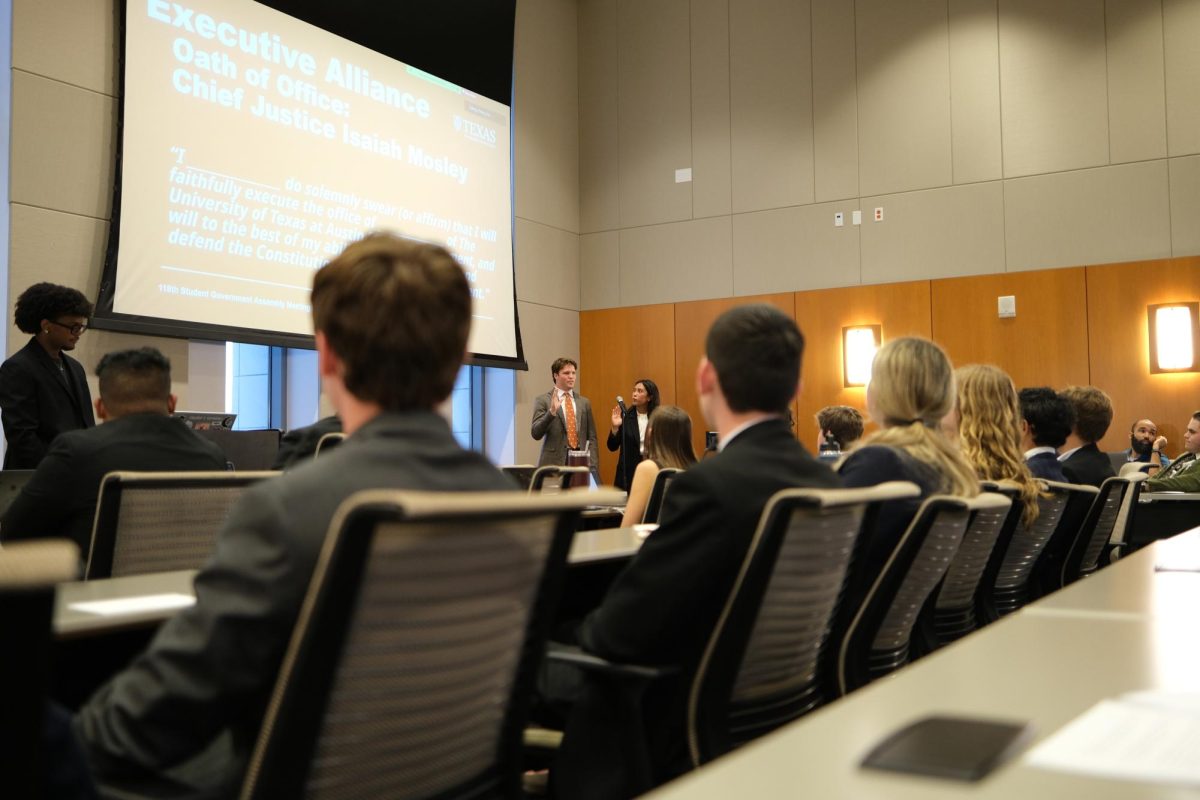The University concluded a seven-month investigation into a student’s claim of race-based discrimination perpetrated by the former executive director of the Center for Women in Law, and found the executive director’s alleged behavior did not violate the University’s Nondiscrimination Policy.
Ayana D’Aguilar, who graduated from UT in May, spoke out on social media in February about her experience interning for then-executive director Linda Chanow, as reported by The Daily Texan in March. D’Aguilar, who identifies as Jamaican-American, said Chanow, a white woman, made racist comments to D’Aguilar that led her to quit her internship at the Center. Chanow resigned from her position following the Texan’s original coverage.
“Based on its investigation, OIE (Office for Inclusion and Equity) concluded that there was insufficient evidence to find Respondent (Chanow) in violation of the University’s Nondiscrimination Policy,” the report says. “The evidence failed to demonstrate that Complainant (D’Aguilar) was subjected to treatment because of, or in part of, her race.”
In a statement provided to the Texan, Chanow said she was “very pleased” with the findings of the investigation.
“I fully condemn racial prejudice of all kinds,” Chanow wrote. “When I began my work at the Center for Women in Law nearly 10 years ago, I vowed that the Center would represent all women lawyers and bridge gaps between women of all races and ethnicities, backgrounds, and cultures, and I am extremely proud of our progress in this area.”
According to the University investigation conducted by OIE and obtained by the Texan, D’Aguilar said Chanow created a hostile work environment and treated her disparately on the basis of race. D’Aguilar cited 10 remarks Chanow made as evidence of the allegations, each of which OIE investigated.
According to the investigation, D’Aguilar said Chanow told her that she would “never feel comfortable in the workplace because (she is) black;” that she would have to “suck it up” when it comes to racial issues; and that she should focus on commonalities that she has with white women.
In the investigation findings, OIE noted that Chanow “admitted making some of the remarks” and “denied making other remarks, or added context to them.” Chanow did not specify to the Texan which comments she admitted to or denied.
“(Chanow’s) remarks did not create a racially hostile work environment,” the investigation says. “The comments (Chanow) is alleged to have made may well be considered uncomfortable and inappropriate. To demonstrate that (Chanow) created a hostile work environment, however, (D’Aguilar) must show that her conduct was ‘severe, pervasive, or persistent.’ The remarks shown in allegations 1-6 were not found to rise to that level.”
According to the investigation, OIE spoke to over a dozen witnesses, including those requested by D’Aguilar and Chanow, as well as current and past interns at the Center.
“Most of the witnesses believed that the CWIL could be a difficult place to work for various reasons, sometimes including (Chanow’s) management style,” the investigation says. “Most of them did not believe that the CWIL was a racially hostile work environment.”
In allegations 7-10, D’Aguilar alleged disparate treatment on the basis of race, saying that projects she worked on were not a priority to Chanow while those of white interns were, according to the investigation.
“(Chanow) is alleged to have been dismissive of (D’Aguilar’s) ideas and concerns, and to have treated her in a manner that might be described as domineering,” the investigation says. “She claims that white employees or interns at the Center were treated differently than this, and that she therefore was subject to discrimination on account of her race.”
In interviews with witnesses, OIE found that some of the staff had positive impressions of Chanow’s management while others had negative impressions.
“(Chanow) was described by a number of witnesses of all races as capable of being a difficult person to work for,” the investigation says. “Staff of all backgrounds used words to describe (Chanow) such as ‘tough,’ ‘demanding,’ ‘abrasive’ and ‘intimidating.’ They offered examples that resembled the experiences described by (D’Aguilar).”
Chanow provided evidence of “complementary and encouraging communications that (Chanow) made to (D’Aguilar) on other occasions” that was also considered, according to the investigation.
“OIE concluded that (D’Aguilar) may at times have been subjected to treatment by (Chanow) that could be considered rude, but that the evidence was insufficient to support a conclusion that (D’Aguilar) had been subject to disparate treatment on account of her race,” the investigation says.
Chanow said she remains committed to workplace equality.
“Although I have been vindicated by the OIE report, there are no winners in this situation,” Chanow said. “It grieves me anytime women are divided … True inclusion can only be achieved through constant and critical self-reflection and growth. That goes for all of us, myself included. More than ever, I realize that our work — the very cause of fighting for greater equity and equality in the workplace — still has a long way to go.”
D’Aguilar said she felt “disappointed and disrespected” by the findings.
“The findings of this report leave the glaring question of, ‘Why were there so many women of color to quit in such a short period of time if Linda has been vindicated?,’” D’Aguilar said. “I don’t think she would have resigned if she thought that she truly could be vindicated.”
D’Aguilar said she does not believe the seven-month investigation was completed in a timely fashion. According to the University’s Handbook of Operating Procedures 3-3020, investigations should be completed within 60 days, “unless unusual circumstances require more time.”
University spokesperson Shilpa Bakre said neither Chanow nor D’Aguilar provided any comments or corrections to the investigation, and the case was given “all due consideration.”
“In any event, the School of Law learned things from this process that will help the CWIL program moving forward,” Bakre said in an email. “The School of Law remains confident that CWIL will continue doing excellent work.”



















